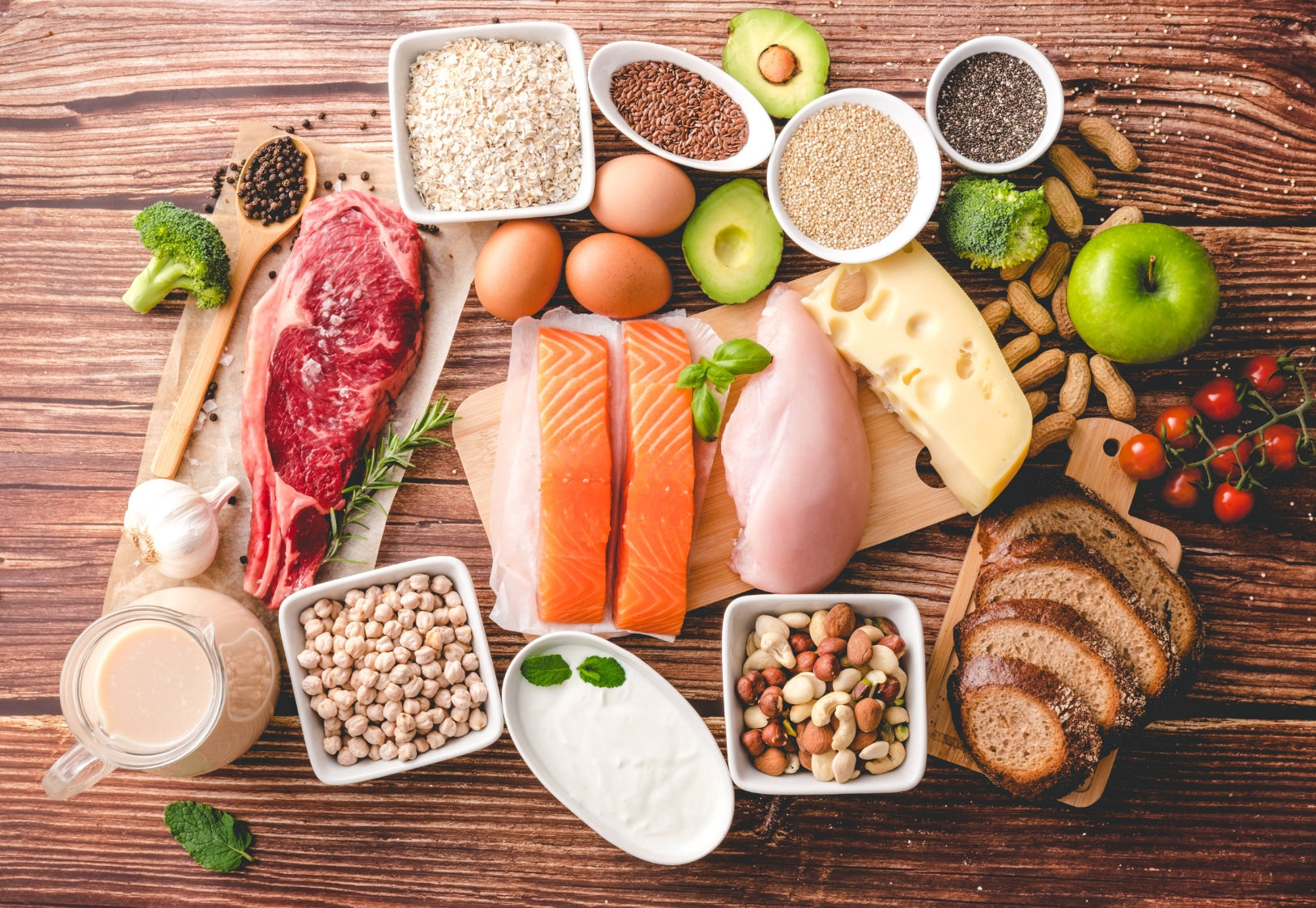
Protein the Ayurvedic Way: Nourishing Muscle & Digestion Naturally
From an Ayurvedic perspective, protein isn’t just a nutrient it's part of a balanced meal that respects digestion (Agni) and supports overall vitality. A protein-rich diet is built not only on what you eat but also how you prepare it and how it aligns with your body type and daily rhythm.
1. Prioritize Digestibility Over Quantity
Ayurveda focuses on how well food is digested, not just how much protein it contains.
-
Choose plant-based proteins like lentils, mung beans, almonds, seeds, dairy, and whole grains.
-
Always soak or sprout legumes and grains before cooking to reduce heaviness.
-
Use gentle cooking methods like boiling or steaming to ease digestion.
-
Avoid cold, heavy, or processed protein foods that dampen Agni.
2. Choose Protein Sources Based on Your Dosha
The right protein for you depends on your Ayurvedic constitution. Matching your protein intake to your dosha supports balance and vitality.
-
Vata types need warm, soft, moist proteins (mung dal, dairy with ghee or sesame oil).
-
Pitta types benefit from cooling proteins (paneer, soaked almonds, mung dal) and should avoid overly spicy dishes.
-
Kapha types thrive with light, dry, warming proteins (quinoa, mung beans, grilled fish) and stimulating spices..
3. Cook with Awareness (Karana)
How you cook protein determines how well your body can use it.
-
Boil, steam, or stew proteins with digestion-friendly spices.
-
Add ginger, cumin, coriander, or fennel while cooking to support Agni.
-
Avoid frying or heavily processed protein sources.
-
Keep food warm and freshly prepared rather than refrigerated and reheated.
4. Combine Foods Intelligently
Ayurveda emphasises combining foods that support digestion and reduce metabolic waste.
-
Combine legumes with grains (like dal with rice or kitchari) for complete protein.
-
Avoid mixing dairy with beans, eggs, or meat in one meal.
-
Keep meals simple with fewer ingredients for easier assimilation.
-
Use spices to bring harmony to combinations and improve bioavailability.
5. Use Healthy Fats and Spices to Enhance Absorption
Proper fat and spice pairing helps unlock nutrients and ease their entry into body tissues.
-
Add ghee or sesame oil to protein-rich dishes to lubricate digestion and aid nutrient transport.
-
Use spices like cumin, turmeric, coriander, fennel, and ajwain to prevent bloating.
-
Avoid processed sauces, cheese, or heavy oils that can overwhelm digestion.
-
Let the flavor be warming and aromatic, not overpowering.
6. Eat Protein at the Right Time and in the Right Amount
Timing and portion control are key for optimal digestion and energy.
-
Eat your protein-rich meals at midday when digestive fire is strongest.
-
Include protein in lunch alongside warm veggies and whole grains.
-
Keep dinner light and easy to digest opt for moong dal or soup-based proteins.
-
Avoid overeating or eating high-protein meals late in the evening.
Protein in Ayurveda is never seen as isolated fuel. It is integrated into a thoughtful meal prepared with care, timed with your body’s rhythm, and built to support long-term vitality.
To ensure your well-being, make sure to order your high-nutrient, sumptuous meals at Wholistically Healthy.
Take proactive steps now to feel your best all year round! Indulge in this week's nutritious and delectable meal offerings.
